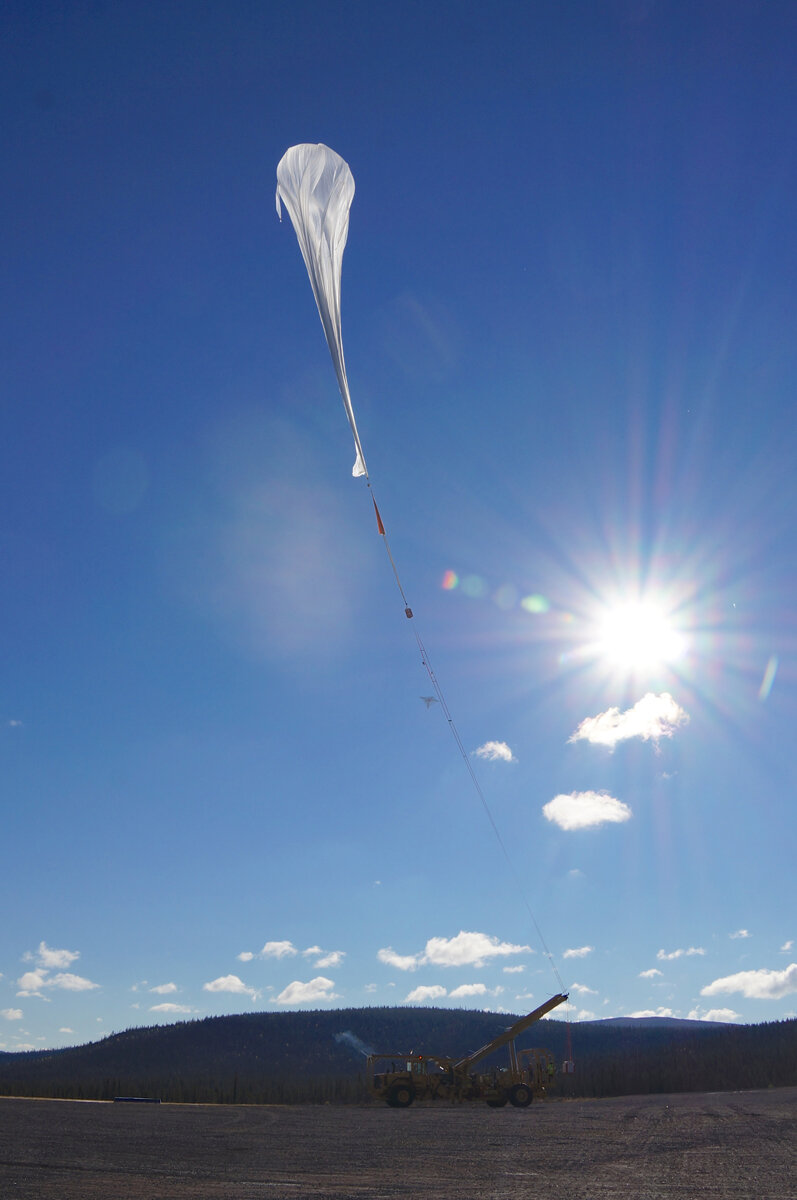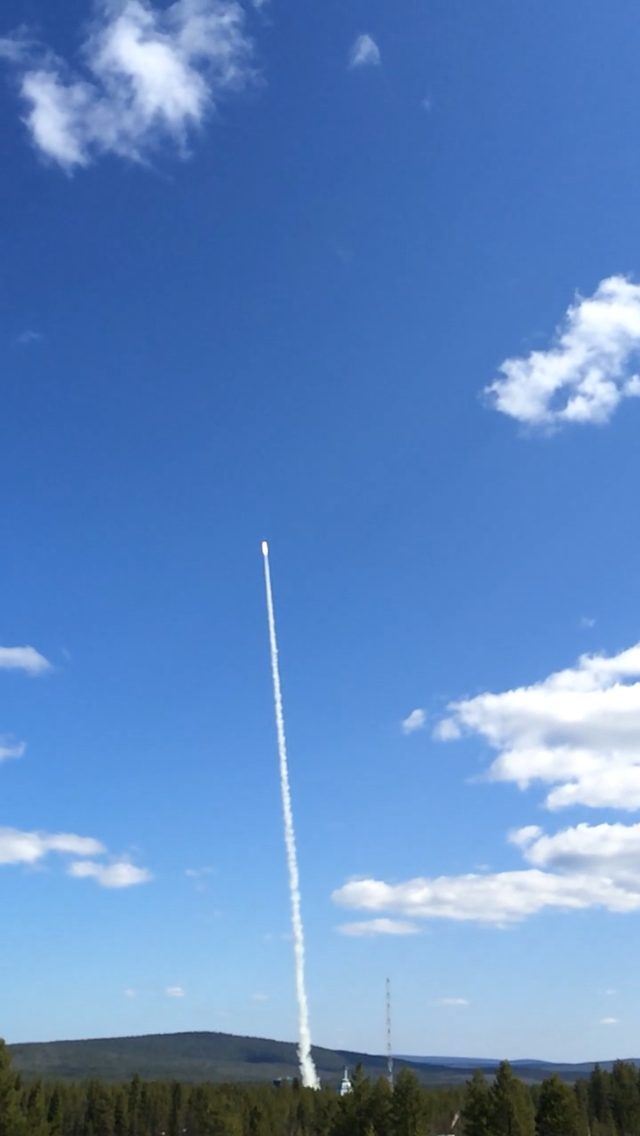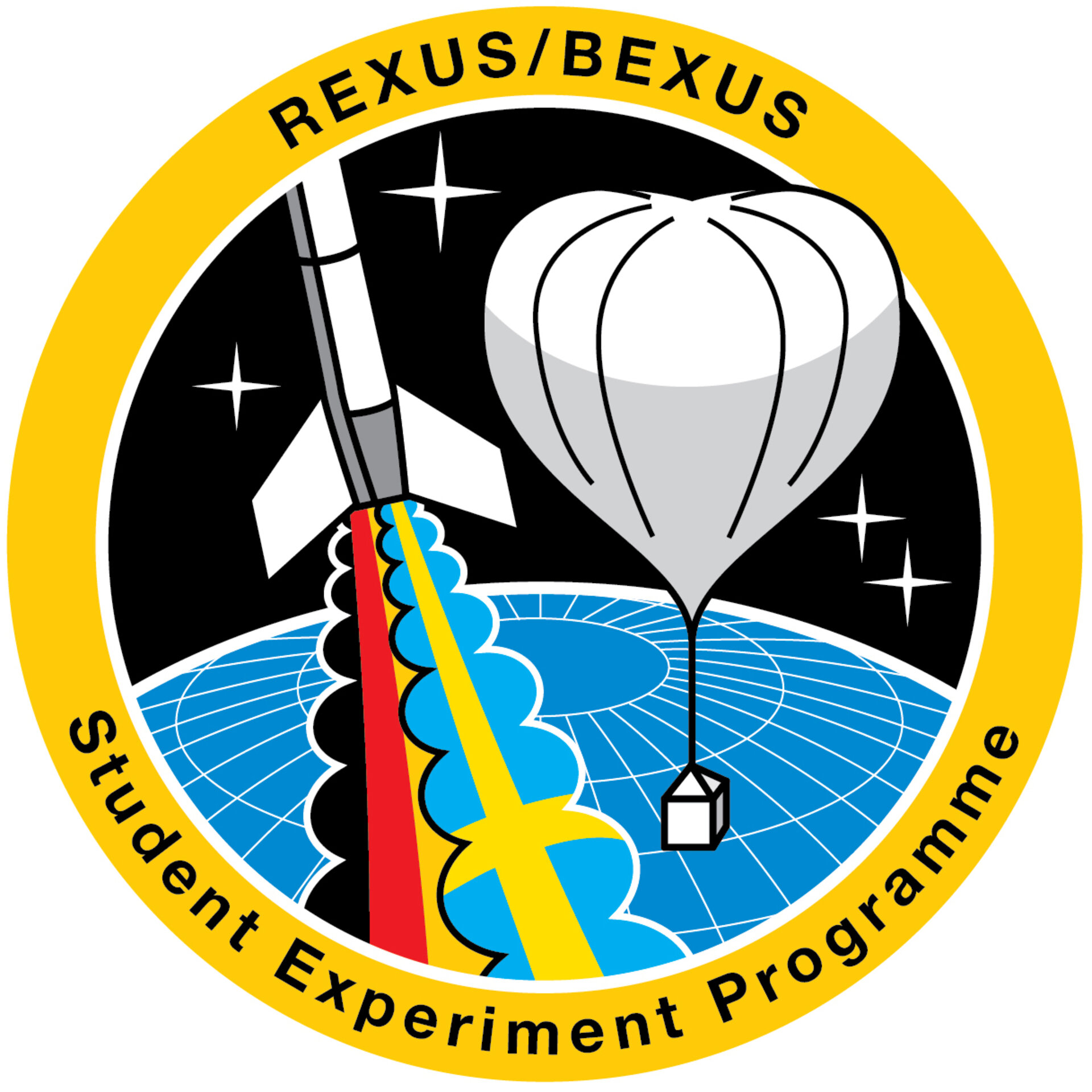Proposals sought for edge-of-space experiments
There is still time to enter proposals for the next round of University student experiments to be sent to the edge of space. The German/Swedish REXUS/BEXUS programme is accepting submissions until 13th October 2014.
The REXUS/BEXUS (Rocket/Balloon Experiments for University Students) programme allows for up to 20 student experiments to be carried into the upper reaches of the atmosphere. Stratospheric balloon experiments will be flown during autumn 2015 whereas sounding rocket experiments are set for spring 2016.
The BEXUS balloons rise into the stratosphere. At 25-30km they float more than twice as high as commercial airplanes. The pressure they experience there is about 12-25 mbar, similar to the atmospheric pressure on Mars.
In other ways, the environment is similar to being in space. The conditions are almost a vacuum and there are similar levels of radiation. This makes the conditions good for experiments that test space instruments, research the weather-bearing layers or measure the radiation profile of Earth’s atmosphere.

The REXUS rockets go higher, reaching to the top of the mesosphere at about 85 km. This is the coldest part of the atmosphere with temperatures reaching –80°C. With a pressure of just 10 micro bar, there is hardly any air here at all. If the rocket is despun, the payload will experience 120 seconds of reduced gravity conditions. This makes REXUS suitable for experiments in material science, fluid dynamics, thermal physics, and other disciplines.
The REXUS/BEXUS programme allows University students to receive realistic training about what a space career can be like. It provides a unique opportunity to work with some of the major space organisations in Europe. The experiments go through a continuous series of tests and milestones to ensure that the requirements of the experiment determined at the start of the project are achieved.
After the initial submission and evaluation, the best projects will have their teams invited to ESTEC, The Netherlands in beginning of December. Here students will present their experiment to experts and justify why they should get a spot on the balloon or rocket.

Following this, the ‘flight tickets’ will be issued to the chosen teams. Typically there will be 8-10 available across the 4 REXUS/BEXUS flights. An additional 8-10 tickets are available for German students through DLR’s selection process.
The selected teams then start working on their design which will be presented and discussed with experts at their PDR (Preliminary Design Review) and later at their CDR (Critical Design Review).
When the design is fixed, their IPR (Integration Progress Review) and EAR (Experiment Acceptance Review) will be held at the students’ respective universities. The REXUS teams will then travel to Germany for bench test and integration. The major events are the launch campaigns at the Esrange Space Center, Kiruna, Sweden.
The opportunity is open to university students from the ESA Member States and Cooperating States. Student teams who would like to participate should upload their Experiment Proposal Forms by 13 October 2014 on ESA Education Office's project portal. The user manuals for the rockets and balloons provide all the information needed to be able to submit a good proposal. Examples and documentation of former REXUS/BEXUS experiments are available here.
Notes for editors:
The conditions to apply and the eligibility criteria can be found here.
The REXUS/BEXUS programme is realized under a bilateral Agency Agreement between the German Aerospace Center (DLR) and the Swedish National Space Board (SNSB). Through the collaboration with the European Space Agency (ESA), the Swedish share has been made available to students from all ESA Member or Cooperating States.
EuroLaunch, the cooperation between the Esrange Space Center of SSC and the Mobile Rocket Base (MORABA) of DLR, is responsible for the campaign management and operations of the launch vehicles. Experts from DLR, SSC, ZARM, and ESA provide technical and logistic support to the student teams throughout the project.
Contact and more information can be found on the Rexus / Bexus website or email: rexus-bexus@esa.int.
|
* ESA Member States Austria, Belgium, Czech Republic, Denmark, Finland, France, Germany, Greece, Ireland, Italy, Luxembourg, the Netherlands, Norway, Portugal, Poland, Romania, Spain, Sweden, Switzerland, United Kingdom and Canada (Associate Member). European Cooperating States Estonia, Hungary, Slovenia, Latvia Cooperating States Cyprus, Lithuania, Malta, Slovakia |




